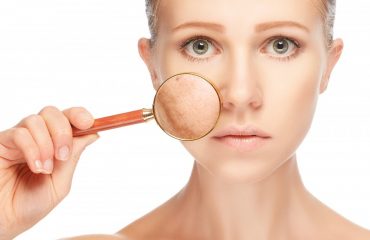As we age our skin changes becoming thinner, veins are more visible, it no longer looks plump and smooth, age spots and skin tags appear and we have many, many more wrinkles. But, the experts at the Anti-Aging and Wellness Clinic have several services that can help you look and feel younger.
Genetics, hormones, sun, harsh weather, pollution, a poor diet and bad habits all affect how your skin ages. For example, smoking and pollution produce free radicals that damage cells and lead to premature aging.
Sun is one of the biggest contributors to aging skin. Over time the UV light from the sun damages the elastin, or fibers, in the skin. The loss of elastin causes the skin to become thinner and sag. Sun exposure can also lead to the loss of subcutaneous fat between your skin and muscle causing thin, saggy skin (sometimes referred to as crepey skin because of its similarity to crepe paper).
Hormones also significantly affect how your skin ages. Hormones affect your metabolism, mental focus, cardiovascular health, sleep, sex drive, and aging. Four hormones that play a significant role in the healthy appearance of your skin are estrogen, testosterone, thyroid hormones, and cortisol.
Estrogen affects the thickness, moisture and tightness of the skin. Without sufficient amounts of estrogen skin appears thin, sallow and less vibrant. You begin to see deeper lines around the eyes and the areas around the eyes and lips begin to droop. Estrogens increase glycosaminoglycans (GAGs) which have a variety of important biological functions. One of those GAGs is hyaluronic acid which increase collagen production keeping skin tight, plump, hydrated and wrinkle free.
High levels of estrogen can also negatively impact the skin causing melasma or a hyper pigmentation of the skin. It is important to have your hormone levels tested and monitored by a qualified physician.
Testosterone stimulates sebum-producing glands which produce oil that helps protect the skin, however, too much oil, especially on the face, can lead to acne. DHEA is a hormone produced by the adrenal gland that is converted into testosterone. If you are taking DHEA supplements or your adrenal gland is producing too much DHEA, this could also stimulate the oil producing glands.
Thyroid disorders increase with age. As we age, the thyroid undergoes numerous morphological and physiological changes which will impact the level of thyroid hormone TSH as well as T3, T4, and reverse T3. Skin conditions associated with thyroid hormone are common. Hypothyroidism occurs when the thyroid is not producing enough hormones which can cause the skin become dry, flaky, and rough.
Hyperthyroidism is when the thyroid overproduces hormones which can cause the skin to be thin and inflamed leading to eczema, or psoriasis.
Poor thyroid function can also lead to low levels of testosterone and chronic low levels of testosterone can lead to poor thyroid function. In both cases, sebum production can also be affected.
Cortisol is your body’s main stress hormone. Too much cortisol production can damage the collagen, hardening it, causing and increase in lines and wrinkles. Cortisol can also reduce estrogen production which reduces the amount of hyaluronic acid your body produces. Too much cortisol also causes and increase in the production of adrenaline which will steal important nutrients from your skin.
Services at the Anti-Aging and Wellness Clinic that can help improve the health of your skin include:
- Bio-identical hormone replacement
- Botox
- Dermal Fillers
- Collagen Induction Therapy
- Platelet-rich Plasma Therapy
- Food intolerance testing
Hormone fluctuations can occur at any age and establishing the correct hormone balance will help you maintain optimal health. At the Anti-Aging and Wellness Clinic we use bio-identical hormone replacement therapy to treat hormone imbalance and slow the signs of aging. We also offer non-surgical procedures to help you look and feel younger. Contact us today to learn more.








